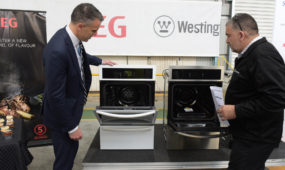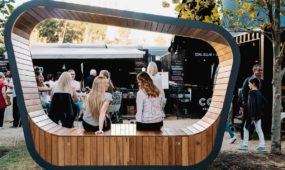Designed for Manufacture
Manufacturing
WHEN competing on the world stage there are some things manufacturing companies can control and some things they can’t. Smart companies minimise the negative effects of the things they can’t control and maximise the positive of what they can.

Sign up to receive notifications about new stories in this category.
Thank you for subscribing to story notifications.
Redarc, an award-winning automotive electronics manufacturer based in South Australia, is one of these smart firms and according to their CEO Anthony Kittel their success comes from this acceptance of the circumstances surrounding their business, coupled with a total rejection of the status quo.
There's a lot of things they can't change – the high cost of labour in Australia, for example – so they have turned to a 'Design for Manufacture' process to mitigate this negative effect on the final product.
That has been the case with their latest product, the Tow Pro, an electronic brake controller that marks the company’s first major foray into export markets.
Kittel says that the Tow Pro is the first product to follow their roadmap process that starts with a customer brief, then a formal business case and finally an engineering specification document.
That document finds its way in to the hands of Timothy Fosdike, the Lead Design Engineer on the Tow Pro. It's up to him how to put it together after that – with one caveat: it must meet the target cost.
“We give Timothy a target costing, so he doesn't design the ultimate product. It has to be built for a price,” Kittel explains.
That target price is a major consideration in the whole 'Design for Manufacture' process.
“The biggest barrier we have with manufacturing here is the cost of our labour. It's the key point about how a product like this can go to the export market. In Australia we might pay $20 an hour. In the US it's about $10.50 an hour, and in Thailand, the rate is $4.50 an hour,” he says.
As soon as someone has to grab a screwdriver, even if it's electric, you're wasting time.
“When you're facing those kinds of barriers, the thing that Timothy had to work really hard on with the product is how we could reduce the amount of labour content.”
The solutions that Timothy Fosdike and Redarc's other industrial designers came up with are fairly ingenious.
For a start, they're in touch with cross-functional teams throughout the process. That means that a production representative is working on the design and layout of a manufacturing cell long before the product even exists.
When it comes to putting together the Tow Pro in that manufacturing cell, even the act of grabbing a screwdriver wastes valuable time – which led the team to aim for a total of zero mechanical fasteners in the final product.
“As soon as someone has to grab a screwdriver, even if it's electric, as soon as they go through with that operation, you're wasting time,” Kittel says.
Multiply those few seconds of wasted effort across tens of thousands of units, and that labour cost starts to add up – and Redarc's forward thinking starts to make sense.
Fosdike shaved even more time off the final build by advanced use of connectorisation.
“A lot of older products have wires coming out and wires soldered in. When you put them through production tests you need one click to one wire, that's a pain and it wastes a lot of time,” Fosdike says.
“This product, we've specifically made it so we have a connector on each end. Basically it goes in to a jig, you close the jig and that is all your connections made. That is twelve connections at once.”
An added benefit, especially for testing, which is the next and one of the lengthiest phases of development, is that all the connectors are dual purpose.
“The software is loaded and all the testing is done through exactly the same ports as the consumer will use in the end. It save a lot of time connecting it, and you don't need multiple test jigs either.”
In total, Fosdike and the team at Redarc spent two years from conception to completion of the Tow Pro. It's a solid product that continues to undergo updates and incremental changes as customers and distributors bring them feedback.
The Tow Pro launched in Australia in June, and is set to compete in international markets in a few months time. The company's other products include everything from battery charging equipment, portable solar units, electronic safety and voltage converters for all sorts of customers – 4WD enthusiasts to trucking and mining companies.
Jump to next article



